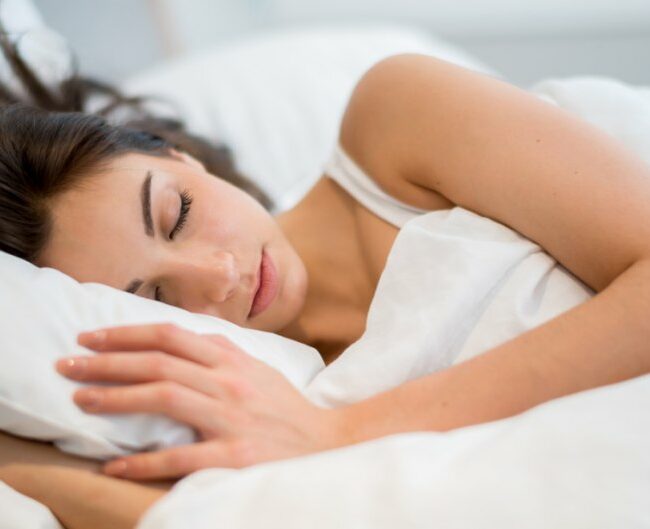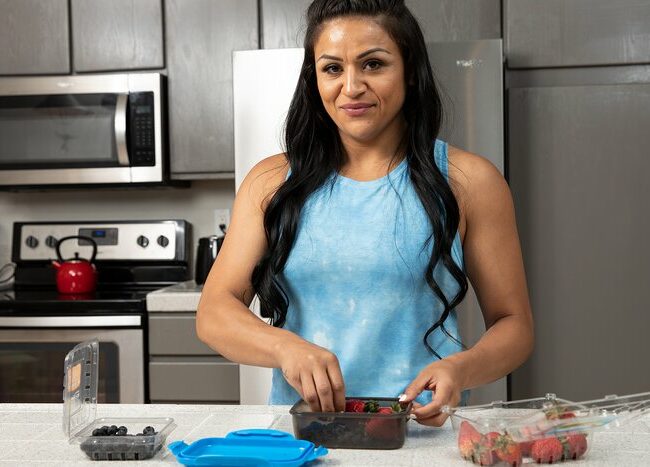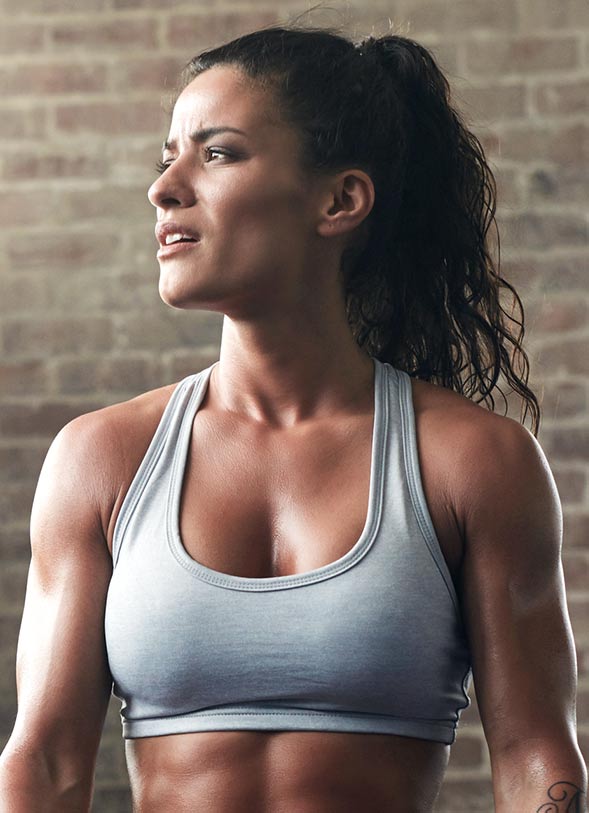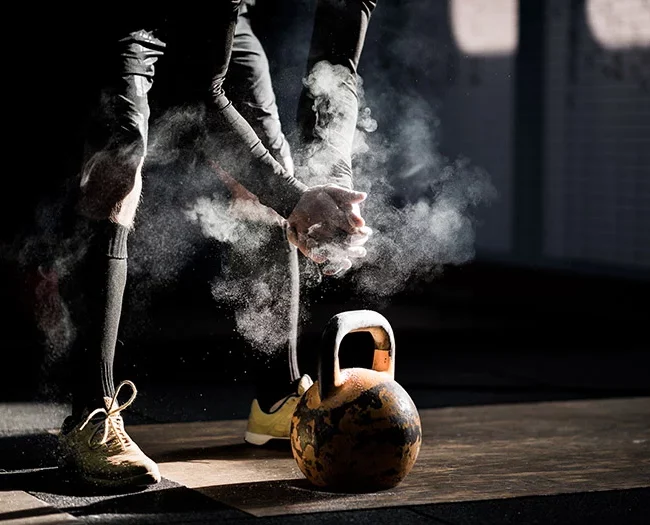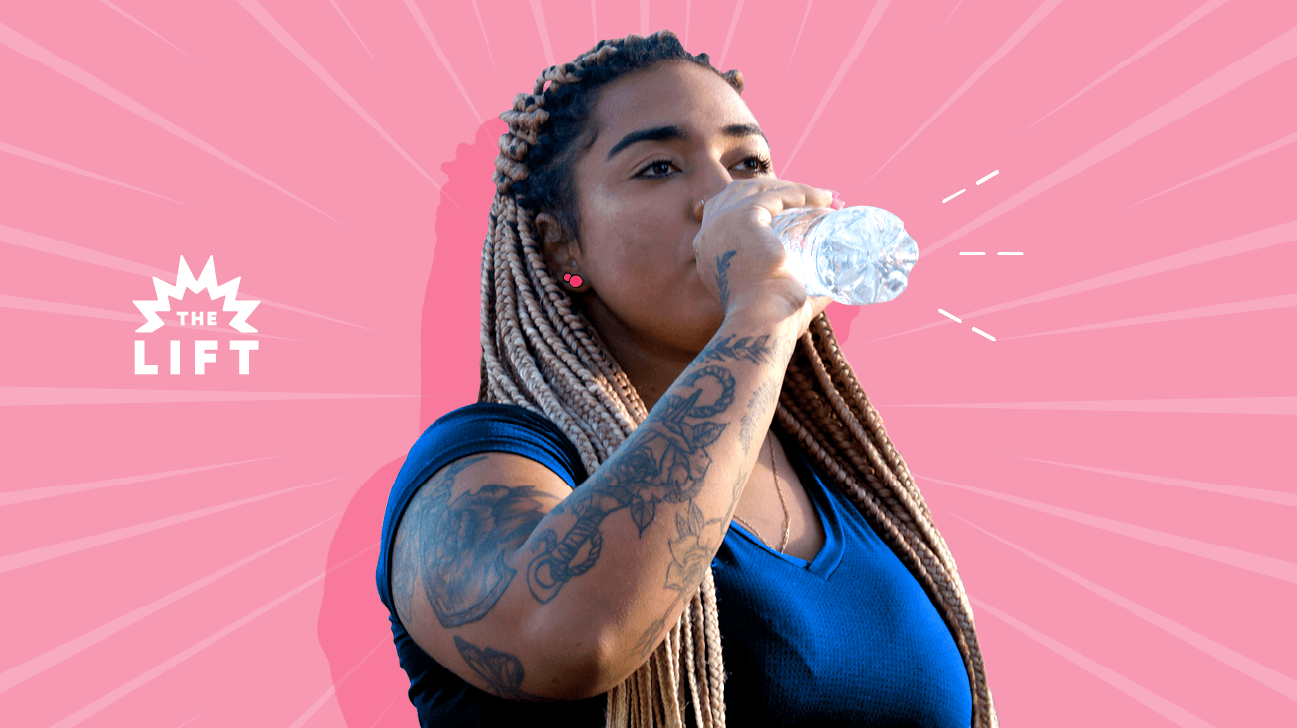
Cute kicks and the perfect playlist *aren’t* the make-it-or-break-it of a sweat sesh. Your hydration levels are. Whether you’re a fan of water or not, there’s no denying we all need it for our bodies to work, and definitely to work out.
Read on to learn why H2O is the MVP of exercise, and how to plan your chugging around your weight-room crushing.
Yes, water is EVERYTHING
You’ve likely heard the stat that water makes up about 60 percent of your body. “That’s true,” says Alexis Parcells, MD, board certified plastic surgeon and owner of Parcells Plastic Surgery.
Mathematically speaking, that means that “someone who weighs about 150 pounds has 90 pounds of water inside their body,” she says.
Why do we have so much water?? Because water is all-caps ESSENTIAL for every single cell in the body.
“Water carries nutrients to your cells, assists in the creation of energy, flushes bacteria from your bladder, and prevents constipation,” Parcells says. “It also promotes cardiovascular health, regulates body temperature, lubricates your joints and muscles, helps your brain function, keeps your skin supple, and so much more.” Damn!
Not enough water = dehydration
Given the above, it shouldn’t surprise you that not getting enough water is a B-I-G problem.
“Without enough water, your body can’t operate properly,” says Parcells. “Your moods will be less stable, your memory will be less sharp, and you just won’t feel good,” she says.
Introducing: Dehydration.
Never heard of it? “Dehydration is what occurs when your body doesn’t have enough fluids to carry out normal functions,” says Baltimore-based physical and internal medicine specialist Dr. Vivek Cherian, MD.
Common signs of dehydration
- urinating less frequently or urine that is darker than normal
- dry mouth and headache
- sleepiness or fatigue
- extreme thirst
- irritability and confusion
- constipation and bloating
- dizziness or lightheadedness
- no tears when crying
If your symptoms don’t improve when you begin rehydrating, call your doc or 9-1-1.
“Prolonged dehydration can even cause kidney stones, urinary tract infections, seizures, and even renal failure,” says Cherian.
Um, no thanks.
OK, OK, but what does this have to do with exercise?
Oh so many things…
1. We lose water when we exercise
How? By sweating.
Parcells explains: Exercise raises our internal body temp. The body sweats to regulate our internal temp, and cool us down. And while sweating is a good thing, it does result in water loss.
Also: Dehydration keeps this natural cooling mechanism from working optimally.
2. Hydration levels affect exercise performance
Even mild dehydration can cause you to become sluggish and lethargic.
And as certified personal trainer Anel Pla CPT with Five Point Zero Fitness says, “It’s pretty tough to maximize performance when you’re feeling lethargic.”
In fact, a research review showed that even mild dehydration (measured as 2 percent of body weight) can negatively affect a person’s maximal aerobic power and cardiovascular output.
3. Exercising while dehydrated can be downright dangerous
“It’s pretty obvious why being dizzy and not concentrated while you’re exercising could be dangerous,” says Pla. “You could go flying off the treadmill, drop a weight on your foot, or injure yourself in another way you wouldn’t if you weren’t dizzy or confused.”
If you get so dehydrated that you’re dizzy, step away from the elliptical and seek out medical attention.
How much water should you drink per day if you exercise?
The popular 8-by-8 rule — that’s eight 8-ounce glasses (or 64 total ounces) of water a day — is a good baseline, according to Cherian.
You should add an additional 10 to 12 ounces of water to that baseline daily for every 30 minutes that you exercise.
You’ll also need to drink additional water if you:
- live in a place with high heat and humidity
- drink a lot of caffeinated beverages
- take a diuretic medication
- are pregnant or chestfeeding
The best drinking schedule for exercisers
“It’s not an exact science, but there is a generalized best schedule for drinking water around a workout,” says Cherien.
When you wake up. Drink 16 ounces of water. After a night of sleeping (and TBH, sweating) your probs dehydrated.
Before your workout (2 to 3 hours). Drink between 17 to 20 ounces of water.
During your workout. Drink 7 to 10 ounces of water every 10 to 20 minutes. So, during a 60-minute workout, you should be consuming at least 42 ounces. (Yay, math!)
Unless you’re sopping with sweat from your workout, you actually don’t want to be overachieving here. “If you guzzle down a whole lot of water mid-workout, your belly will feel full and sloshy and you’ll end up also risking getting cramps,” says Pla.
After your workout. Drink at least 16 more ounces of water within the hour after your workout ends.
“The absolute best way to make sure you’re hydrated would be to weigh yourself before your workout, and then weigh yourself after your workout,” Cherian says.
Cherian also notes that we shouldn’t get too excited about whatever amount of water weight we lose during a sweat sesh.
“A lot of people will weigh themselves after exercising and feel good about losing 2 or 3 pounds, but they shouldn’t because it’s actually indicating that they need to drink water,” he says. “For every pound you’ve lost, you want to drink 20 ounces of water.”
Throughout the day. Drink water when you’re thirsty and ideally 8 ounces with every meal.
Ways to stay hydrated throughout the day
- Keep a reusable bottle of water with you during the day.
- Try some infused water combos if you’re tired of regular water.
- Drink sparkling water.
- Dilute flavored beverages (like OJ) with water.
- Set regular “drink water” alerts on your phone.
- Use a hydration app like iHydrate, WaterMinder, or Hydro Coach.
ICYWW: It is possible to drink too much water, but it’s very rare
Overhydrating is a thing.
“Mild symptoms include headache, nausea, and confusion, and severe symptoms can include delirium,” says Cherian.
But that really *shouldn’t* keep you from sipping the clear stuff because, according to him, “Over-hydrating really isn’t something the general population needs to worry about.”
Bottom line
To ward off injury and maximize performance during exercise while you sweat, water is definitely your workout BFF. Trust, staying properly hydrated will also make you feel good outside the gym too.


